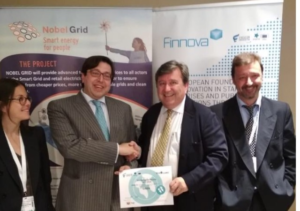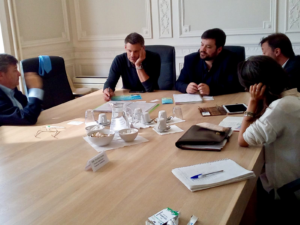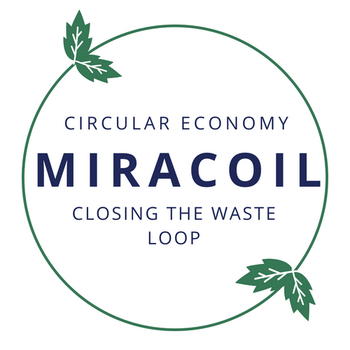Country: Spain
Category: Energy
 Project Aim: Converting several types of waste as feedstock into high-quality second-generation advanced biodiesel. This technology is known as thermos-mechanical cracking process (TMCP). The challenge remains to develop techniques that are economical and easily replicable, avoid environmental pollution and risks for human health, and reduce carbon emissions, just as promoting the circular economy in recovering the value from the waste.
Project Aim: Converting several types of waste as feedstock into high-quality second-generation advanced biodiesel. This technology is known as thermos-mechanical cracking process (TMCP). The challenge remains to develop techniques that are economical and easily replicable, avoid environmental pollution and risks for human health, and reduce carbon emissions, just as promoting the circular economy in recovering the value from the waste.
What is the problem to solve?
Over the recent years, Municipal Solid Waste (MSW) management has been fast evolving from the conventional methods of landfilling, open-air burning, dumping in oceans, to more sophisticated methods. In addition, the enormous environmental and economical downsides of landfilling have reached the top of waste policy agenda and they are looking for alternatives to minimize landfilling, where policies tend towards zero-landfill and circular economy development. Similarly, treating MSW through incinerators which generate energy have proven to be seriously damaging to human health as carcinogenic dioxins are not eliminated even when sophisticated and very expensive filters are deployed. The challenge remains to develop techniques that are economical, easily replicable, avoid environmental pollution and risks for human health and reduce carbon emissions, while promoting the circular economy in recovering the value from the waste. MIRACOIL has been working for the last six years to change the way we treat and eliminate waste.
What does MIRACOIL do:
MIRACOIL commercializes a patented new technology that can convert several types of waste as feedstock into high-quality second-generation advanced biodiesel. This technology is known as thermos-mechanical cracking process (TMCP). The company’s vision agrees with environmental objectives to minimize waste generation, avoiding landfilling and incineration, and convert waste into a resource; in this case, a synthetic secondary fuel to substitute fossil fuels. The key innovation of the TMPC system lies in obtaining liquid hydrocarbons by cleavage of carbon and hydrogen molecules using various organic biomass waste feedstock.
The TMCP is a clean, efficient and flexible technology, an alternative to the current linear production-consumption system, reintroducing waste in the economic cycle, treating it locally and extending its life cycle. Thus, it contributes significantly to reduction of landfilling and encourages energy independence. Compared with competing solutions, TMCP is more profitable than competitive technologies that often have higher operational costs compared with the income they generate. TMCP’s disruptive technology presents numerous advantages over other existing waste treatment and disposal systems. A TMPC’s technology removes a broad range of waste treatment and disposal systems. A TMCP’s technology removes a broad range of waste (up to 85%) without the need to separate the input materials (except for glass, metal and recycled materials).
 What MIRACOIL will do in the future:
What MIRACOIL will do in the future:
In 2018, in Spain, MIRACOIL will manage the construction of the first demonstration industrial plant of the TMPC technology for the treatment of urban solid waste and plastics. At the same time, we will plan the commercial diffusion for the installation of other plants in Europe, Latin America and Africa.
What does Europe represent for the company?
Europe is for MIRACOIL a great opportunity to spread a disruptive, cleaner and more efficient technology than the current ones, internationalize its use and achieve collaborations that pursue the same objectives of environmental protection, solid waste disposal, oils, hospital waste and plastics for avoid that they end up contaminating the aquifer and marine environment and obtain funding for treatment plants and dissemination actions.
CEO’s testimony:
For me as CEO, this recognition is a reward for the effort applied by the technologist and the MIRACOIL team for the last five years and an opportunity to spread the usefulness of TMCP Technology.

